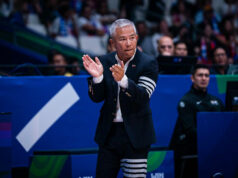Any way fans look at it, the punishment handed the Astros for cheating was both unprecedented and shocking. Sign-stealing has been going on for as long as they can remember, as much a reflection of the state of competitiveness in Major League Baseball as of the compelling calling for protagonists to get ahead by any and all means necessary. And yet, the fact that commissioner Rob Manfred threw just about everything, including the proverbial kitchen sink, at quarters he deemed complicit in the conspiracy underscores his belief that it: 1) egregiously overstepped limits through the use of technology; and 2) went on even after he issued a memorandum threatening harsh penalties for its particular type of transgression.
Manfred’s hands were tied, of course. He had to act, and fast, and not simply because the Astros employed the extra-legal measures throughout their World Series-clinching 2017 season. With a new campaign about to start, the last thing the MLB needed in the face of already-waning interest was a controversy that lingered. He likewise needed to focus his attention on another probe, this time of the Red Sox, for using live video coverage to help batters prep for oncoming pitches during a successful run to the championship the next year.
Tellingly, Manfred saw fit not to sanction any players even though they clearly instigated and perpetuated the scheme. Perhaps he figured doing so would inflict further damage given the sheer number of guilty parties, not to mention heighten the possibility of the development producing a domino effect. Instead, he lay the blame squarely on the Astros and their heads. Never mind that owner Jim Crane knew nothing about it, that general manager Jeff Luhnow said he would have stopped it right away if he did, and that manager A.J. Hinch, while failing to alert higher-ups, undertook measures to sabotage it.
No doubt, Manfred hopes slapping the Astros with a $5-million fine and depriving them of two draft picks while banning Luhnow and Hinch for a whole year will send the right signals to all and sundry. And once he’s done looking into the Red Sox’s transgressions, he’s likely to go along the same lines; a huge levy, significant confiscation of assets, and lengthy suspension. He wants stakeholders to know he’s bent on protecting the integrity of the sport, and won’t ever be afraid to use the power of his office to do so.
In assessing the turn of events, not a few quarters have argued that the Astros and Red Sox shouldn’t look to the hardware on their respective mantels with shame. How about the others, though? How about the Dodgers, who wound up losing to both? Even as the titles were earned, continued second-guessing on how much of the work was legitimate figures to wipe some luster off the Commissioner’s Trophies. Which is why Crane had to cut cleanly and sever all ties with Luhnow and Hinch. And why Manfred was harsh, and will be even harsher the next time around.
Anthony L. Cuaycong has been writing Courtside since BusinessWorld introduced a Sports section in 1994. He is a consultant on strategic planning, operations and Human Resources management, corporate communications, and business development.



